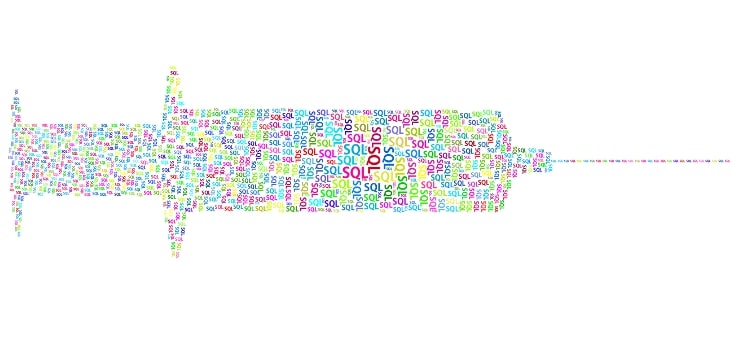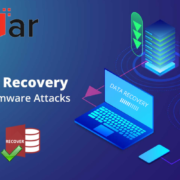Structured Query Language, SQL for short, is a language that enables communication with databases. Data is a core part of web and mobile applications, and it is stored in databases. People need language to manage and work on this data, which is where SQL helps.
If you want to manage databases in the future, then SQL is worth learning. This language, like many others, has a markup that every beginner in programming needs to learn first. There are also many other things to learn about, such as the concept of tables on SQL.
But then, SQL is complex, making it difficult to master quickly. There are lots of facts about SQL databases that even regular users do not understand. This article looks into some of the least known facts about the SQL database.
Here is everything you need to know.
1. SQL Server has Built-In Zero-Impact Instrumentation Tools
This is one of the biggest facts that most developers do not realize about SQL databases. The SQL database system has dynamic management views (DMVs) that every developer needs to know about. DMVs are queries that help developers monitor the health of a server to ensure optimum performance.
In short, they are queries that return various data about an SQL server. The data released is dynamic, meaning the user receives new data every time there is a release. It is also worth noting that there are two major types of DMVs – server-scoped and database-scoped.
As a developer, you can receive lots of insightful and actionable data from the SQL server through a DMV. For instance, you can know the SQL statements that are causing too much load on your server. It is also easy to know the indexes that are wasting space on your server and causing a slowdown.
There are a plethora of tools that you can find on the SQL server. DMVs are a goldmine for developers because they make it easy for them to fix SQL servers. They can pinpoint issues easily and help developers navigate through issues that make them worth knowing as a beginner.
2. SQL Functions Rarely Perform Well
Performance is everything for developers as it helps them achieve their goals. However, there are lots of reasons why a developer’s productivity may significantly go down. The various SQL functions that are available on servers can make a developer’s performance drop drastically.
These functions often use blocks of code that developers re-use for different purposes. For instance, you can use a specific function to parse certain characters and re-use the same function in another location. The reason why most functions make queries and systems slow is that they are resource-intensive.
The good thing is that there are ways to speed up your performance. With functions being the major source of slow speeds in queries, removing them can be helpful. This is especially true when the query will be returning large data sets, and you do not want a drop in performance.
Thus, re-using functions and accessing them from multiple locations comes with its set of flaws. Slow speeds and reduced productivity are obstacles in data management. Using stored procedures and views can also help, but it may also come with its performance drawbacks, as there is no sure-fire way.
3. Yesterday’s Articles and Books are Often Wrong Today
As a developer, it is always vital to update your knowledge of SQL. Staying updated about the latest in technology helps you avoid falling behind and missing vital opportunities. However, doing this with SQL can be tricky as there are very few reliable sources of information.
The fact that SQL has been around for a while and keeps evolving is the reason for this. Ideas about SQL that were valid a few months ago may be inapplicable today. This makes it difficult for developers to update their knowledge on SQL with the most current information.
One of the best ways to avoid this problem is to take an SQL course. Advancing your knowledge with a course is the best way to know the latest SQL concepts and techniques. Trainers regularly update their course materials to make training profitable to learners.
4. “With (NOLOCK)” Doesn’t Mean No Locking
Many people also do not understand what NOLOCK means in SQL. There is no doubt that NOLOCK is a good practice for SQL users as it makes queries return faster. But then many people misunderstand it and, in the end, affect their performance and that of other people when using tables.
The first thing to do is know what NOLOCK helps you achieve. It allows SQL to read from tables without getting blocked by other processes and even if there may be locks. This is beneficial to users as it helps improve the performance of queries.
Even when using NOLOCK, you need to understand that no one can change a table until your query is finished. This may make it difficult for you, for instance, to drop an index while others are querying the table using NOLOCK. It is therefore important that every user understand when it is best to use NOLOCK.
5. MySQL is an Opensource Version of SQL
Many people cannot differentiate between MySQL and SQL. Knowing the difference between the two helps you understand how you can use them better. Besides, you may never become an experienced database manager without a good understanding of the basics.
The main similarity between MySQL and SQL is that they are both relational database management systems. The SQL server is a licensed Microsoft product, meaning that you have to pay and obtain a license before using it.
On the other hand, MySQL is an open-source version of the SQL server, meaning that it is free to use. The differences between the two are in the languages they support, storage spaces, query cancelation, backups, available editions, and data file manipulation.
6. There are Different Developers of SQL
It is also worth mentioning that SQL has different developers. Many people do not know that they can become SQL developers if they learn how to go about it. Different levels of SQL developers exist, and their duties differ according to the level they have studied and mastered.
You can choose to be a junior, mid, or senior-level SQL developer. If choosing to be a junior developer, the main skills you need are a basic understanding of coding and everything about testing functions. Mid-level developers also have a set of skills that they need to master.
A senior developer needs to know how to go about the most complex things in SQL development. They assume a great deal of responsibility in organizations and need more years of experience.
→ Check devart which is one of the best SQL query generator to run your SQL Queries in a faster way.
Final Conclusion
As already mentioned, SQL is not as easy as it looks when applied in different fields. For instance, banks are some of the biggest users of SQL databases. But then, what people see when using mobile banking applications and payment processors is not what happens in the background.
Behind the scenes is a complicated database that makes everything possible. This also includes different social media channels and music applications which make intensive use of databases. As a developer, SQL is worth learning about, especially because of its universal applicability.




